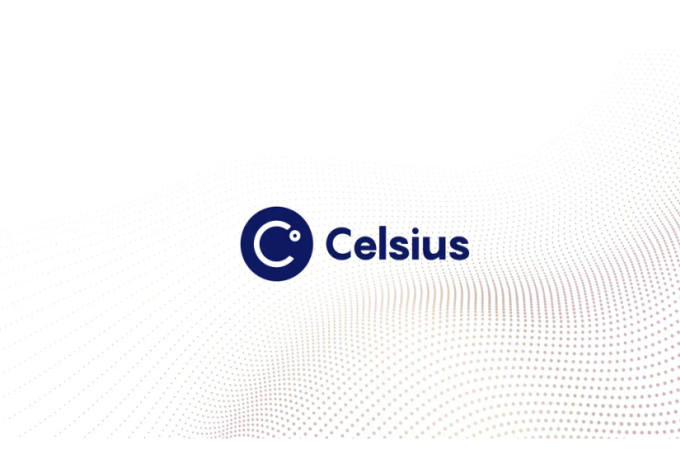
The 16 hottest Nordic fintech startups
By Oscar Williams Grut for Business Insider
Financial technology, better known as fintech, is absolutely exploding around the world right now, with new businesses springing up doing everything from online lending to handling cryptocurrencies.
London has emerged as a capital of fintech in Europe but Nordic countries — Denmark, Sweden, Iceland, Norway, and Finland — also have a flourishing scene.
The region is already home to a so-called fintech “unicorn” — a startup worth over $1 billion — and small business banking startup Holvi, founded in Finland, was bought by Spanish banking giant BBVA back in March (for that reason, we’ve not included it on the list.)
We have rounded up the 16 most exciting fintech businesses from the region below.
16. Lendify — Swedish peer-to-peer lending platform

YouTube/Lendify
Based: Stockholm, Sweden.
Founded: 2014.
Raised: $3 million (£1.95 million).
What it does: Sweden’s first peer-to-peer lending platform, focusing on consumer loans. The company launched to the public in April 2015 after a soft launching in September 2014. It recently raised €2 million (£1.43 million, $2.2 million) and loan applications worth SEK 400 million (£35 million) have been made since launch,according to its annual report.
15. Pleo — A “smart” company card linked to an app

Pleo founders Niccolo Perra, left, and Jeppe Rindom.Pleo
Based: Copenhagen, Denmark.
Founded: 2015.
Raised: N/A.
What it does: Pleo provides a “smart” company credit card for employees to use that automatically captures receipts and categorizes spending. It is also linked to an app for both employers and staff so they can add notes and track spending. The startup won Pioneer of The Year award at the prestigious Pioneer tech festival in Vienna and has launched a beta trial of the product with 500 companies, representing over 10,000 staff.
14. Lendino — Danish peer-to-peer lending platform
Based: Copenhagen, Denmark.
Founded: 2013.
Raised: N/A.
What it does: A Danish marketplace lending platform for institutional and individual investors, with a focus on lending to people or businesses in your local area. Well-known early stage London tech venture capital fund Passion Capital invested in the platform, although the amount was not disclosed. So far DKR 28 million (£3.1 million) has been lent over the platform.
13. Fixura — Finish peer-to-peer lending platform

YouTube/Fixura
Based: Vasa, Finland.
Founded: 2010.
Raised: N/A.
What it does: A consumer peer-to-peer loans platform. Over €56 million (£47.1 million) has been lent over the platform to date, with an average annual return of 10.25% including subscription and transaction fees.
12. Coinify — Danish bitcoin company that lets businesses accept the cryptocurrency

Coinify CEO Mark Højgaard.Coinify
Based: Copenhagen, Denmark.
Founded: 2014.
Raised: N/A.
What it does: Coinify is a bitcoin company that helps merchants accept the cryptocurrency and builds tools to help users pay with bitcoin. The company raised an undisclosed funding round in the “multi-millions” in September 2014, according to CoinDesk, and is the fourth biggest bitcoin company in the world by volume. Over 15,000 merchants around the world are signed up and it has 10 to 15 new ones signing up each day.
11. FundedByMe — Swedish crowdfunding platform

An advert for subscription snack service Fikabox, which ran a crowdfunding campaign on FundedByMe.Screenshot/FundedByMe
Based: Stockholm, Sweden.
Founded: 2011.
Raised: N/A.
What it does: FundedByMe is a crowdfunding platform that covers 8 countries including Sweden, Germany, and Singapore. The platform has over 68,000 members who have invested over €23 million (£19.3 million) into 449 companies.
10. Safello — Swedish bitcoin marketplace that’s done a deal with Barclays

The Safello Team.Safello
Based: Stockholm, Sweden.
Founded: 2014.
Raised: $1.27 million (£970,000).
What it does: A bitcoin exchange that allows direct payments from 86 banks across 11 countries. The company signed a deal with Barclays to explore how the blockchain, the technology that underpins bitcoin, could be used in traditional finance.
9. LunarWay — Danish app-only bank

The LunarWay team.LunarWay
Based: Aarhus, Denmark
Founded: 2015.
Raised: N/A.
What it does: Like Mondo and Atom in the UK, and Number26 in Germany, LunarWay is one of a number of startups trying to build an app-only bank for the millennial generation. The startup is only 11-months old but has already launched a closed beta trial of its product, a debit card linked to its app. Customers can check their balance, move money, and make payments through the app.
8. Edgefolio — Connects hedge funds with potential investors

A screenshot of the Edgefolio website.Edgefolio
Based: Oslo, Norway.
Founded: 2013.
Raised: N/A.
What it does: Edgefolio is a platform that connects institutional investors and hedge funds. Hedge funds can market themselves to would-be invetors while institutional investors can easily shop around to find the best deal for them. Over 11,000 hedge funds are on the platform. The startup has also launched a product to help hedge funds send live data to clients.
7. Auka — A mobile payment app that’s huge in Norway

Auka founder Daniel Döderlein.Auka
Based: Oslo, Norway.
Founded: 2010.
Raised: $11.5 million (£8.7 million).
What it does: Originally launched as mCash but rebranded as Auka earlier this year, the startup built a payment app that lets people pay friends from their smartphone or pay merchants in-store straight from the app. It has an exclusive deal with Norway’s second largest bank Sparebank 1 and has 500,000 customers in the country. Auka is now looking to sign up other banks elsewhere in Europe to use its payment app in other countries.
6. BehavioSec — Swedish biometric security company that works with most Nordic banks

BehavioSec’s co-founder and COO Olov Renberg at FinovateBehavioSec
Based: Luleå, Sweden.
Founded: 2007.
Raised: $8.2 million (£5.3 million).
What it does: Provides a layer of so-called biometric security that lets banks tell who you are just from the way you type, move your mouse, or touch your phone screen. The company is used by most Nordic banks, with millions of customers unknowingly using its technology. It recently launched in the UK and is working with Nationwide.
5. Trustly — Swedish online payment method

Trustly.Trustly.
Based: Stockholm, Sweden.
Founded: 2008.
Raised: $30 million (£19 million).
What it does: An online payment method that lets you pay directly from your online bank account with just the click of a few buttons. The company recently expanded to 21 new European countries including the UK. Turnover jumped by 85% in 2015 to SEK 187 million (£16.6 million) and it doubled its profit to SEK 60 million (£5.3 million).
4. Tink — A personal finance app that categorizes spending and helps you budget

The Tink app in action.Tink
Based: Stockholm, Sweden.
Founded: 2012.
Raised: $14.17 million (£10.7 million).
What it does: Tink is a personal finance app that lets people keep track of their money by seeing all their accounts in one app. The app also automatically categorises and analyses spending and lets users send payments from their different accounts straight from the app. It has over 350,000 users in Sweden and is in the process of expanding across Europe. Backers include Dutch bank ABN Ambro.
3. Meniga — Icelandic company that makes personal finance tools for big banks like ING

Meniga CEO Georg Ludviksson.Meniga
Based: Reykjavik, Iceland.
Founded: 2009.
Raised: $6.5 million (£4.2 million).
What it does: Meniga builds personal finance management tools that it sells to banks to then give to its customers. It works with banks including Skandia, ING, and Islandsbanki, reaching 25 million people across 16 countries. The company announced a similar deal with Santander in November,with CEO Georg Ludviksson telling BI at the time: “Our vision for mobile banking is thinking of it as the Facebook of anything financial.”
2. iZettle — Swedish maker of card readers for small businesses

iZettle CEO Jacob de Geer.iZettle
Based: Stockholm, Sweden.
Founded: 2010.
Raised: $244 million (£184.3 million).
What it does: iZettle builds card readers designed for small businesses. The company also recently branched out into lending, based on data from usage of the card readers that can be used to predict future revenues. iZettle is reportedly valued at $500 million (£325 million), according to the Financial Times.
1. Klarna — Swedish online payment business

Klarna CEO Sebastian Siemiatkowski.Klarna
Based: Stockholm, Sweden.
Founded: 2005.
Raised: $291.3 million (£220 million).
What it does: Klarna lets any retailer add the equivalent of Amazon’s buy with one click button. A customer can buy an item by inputting just their email and postcode. The buyer then gets an email from Klarna asking them to fill in payment and delivery details. Meanwhile, Klarna has already paid the retailer and will get that money back when the customer coughs up. Klarna is a “unicorn,” valued $2.25 billion (£1.4 billion). It handled 30% of all online purchases in Sweden in 2014 and processed $9 billion (£5.74 billion) worth of transactions.
First appeared at BI






